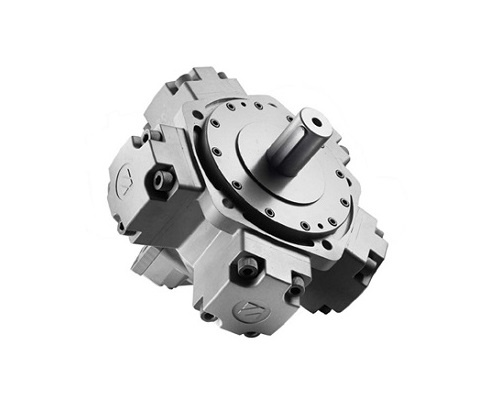Buy Best Quality Hydromotor
A hydromotor, also known as a hydraulic motor, is a device that converts the pressure and flow of a liquid (usually oil or water) into mechanical energy. It is a type of rotary actuator that is commonly used in industrial and mobile machinery, such as construction equipment, agricultural machinery, and machine tools.
Hydromotors work by using the pressure and flow of the liquid to turn a rotor or a set of gears, which in turn drives a shaft or other mechanical components. The rotor or gears are enclosed in a housing, which is filled with the liquid and sealed to prevent leaks.
The amount of torque and speed that a hydromotor can produce depends on the size of the motor, the pressure and flow of the liquid, and the design of the rotor and gears.
A hydromotor, also known as a hydraulic motor, is a device that converts hydraulic energy into mechanical energy to produce rotational motion. It works by using the pressure of a hydraulic fluid to generate torque and rotational speed.
Advantages of hydromotors:
High power density: Hydromotors are capable of delivering high power output for their size and weight. This makes them ideal for use in applications where space and weight are limited, such as in aircraft and mobile equipment.
Speed control: Hydromotors provide excellent speed control and can maintain a constant speed even under varying loads. This makes them ideal for use in applications where precise control of speed is critical, such as in machine tools and robotics.
Wide range of operating speeds: Hydromotors can operate at a wide range of speeds, from very low speeds to very high speeds, without the need for a gearbox or other speed-reducing devices.
Smooth operation: Hydromotors operate smoothly and quietly, without the jerky movements and vibrations often associated with electric motors.
Disadvantages of hydromotors:
Complex system: Hydromotors require a complex hydraulic system, which can be expensive to install and maintain. This complexity also makes them more prone to failure than other types of motors.
Fluid leaks: Hydraulic systems can be prone to fluid leaks, which can cause contamination of the environment and lead to system downtime.
Limited efficiency: Hydromotors are less efficient than electric motors, with a typical efficiency range of 50% to 90%. This means that they can generate more heat and consume more energy than other types of motors.
Limited speed range: Although hydromotors can operate at a wide range of speeds, they are limited by the available hydraulic pressure and flow rate. This means that they may not be suitable for high-speed.


